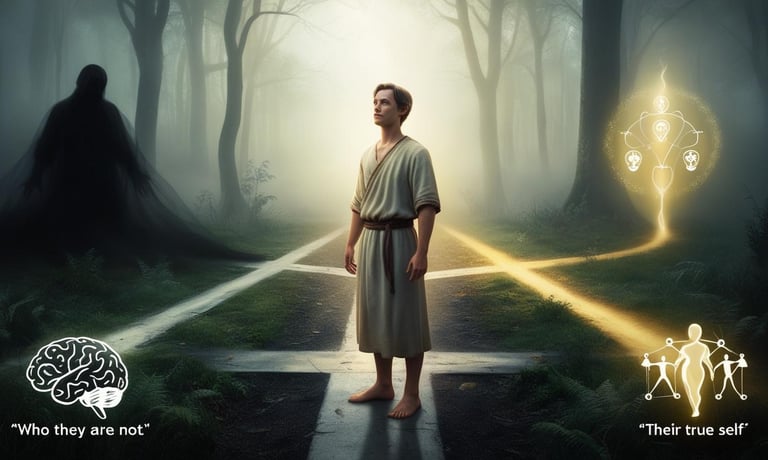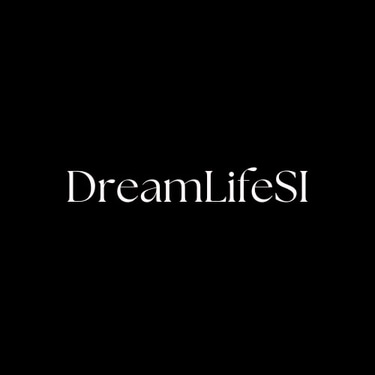The Truth of You: Identity Through What You Are Not
PERSONAL GROWTH
By Sia Imime
5/16/20253 min read


Disclosure: This article contains affiliate links, meaning that if you purchase through them, I may earn a small commission at no extra cost to you. I only recommend products that I believe will add value to your personal growth journey.
In a world saturated with external influences, understanding one's true self becomes a profound journey. The statement, "To know who you are, you must know who you are not," encapsulates the essence of self-discovery. This exploration delves into psychological theories, sociological concepts, and spiritual teachings to illuminate the path to authentic self-understanding.
Psychological Perspectives: The Inner Self
Psychology emphasizes the importance of self-awareness in personal development. Carl Jung, a pioneer in analytical psychology, stated, "The world will ask who you are, and if you do not know, the world will tell you." This highlights the necessity of introspection to prevent external definitions from shaping our identity.
William James, often referred to as the father of American psychology, explored the concept of the self, distinguishing between the "I" (the self as knower) and the "Me" (the self as known). This distinction underscores the complexity of self-perception and the importance of understanding both our internal experiences and how we are perceived externally.
Sociological Insights: The Looking-Glass Self
Sociology offers valuable insights into how our identities are shaped through social interactions. Charles Horton Cooley introduced the concept of the "looking-glass self," suggesting that individuals form their self-image based on how they believe others perceive them. This reflective process involves three steps:
Imagining how we appear to others.
Imagining the judgment of that appearance.
Developing feelings about ourselves based on our perception of others' judgments.
Understanding this concept helps in recognizing the external influences on our self-concept and the importance of distinguishing our true selves from societal expectations.
Spiritual Teachings: The Path to Authenticity
Spiritual traditions across cultures emphasize the journey of self-discovery as a path to enlightenment. In Christianity, the transformation of identity through faith is a central theme. As stated in 2 Corinthians 5:17, "Therefore, if anyone is in Christ, the new creation has come: The old has gone, the new is here!" This passage reflects the idea of shedding former identities to embrace a renewed self aligned with spiritual truths.
Similarly, Eastern philosophies advocate for the dissolution of the ego to realize the true self. Practices like meditation and mindfulness are tools to observe and release false identities, leading to a deeper understanding of one's essence beyond societal roles and labels.
Integrating Morals and Good Manners
The journey to self-awareness is not solely an inward endeavor but also manifests in our interactions with others.Embracing virtues such as humility, empathy, and respect reflects an understanding of our interconnectedness. By recognizing who we are not—free from arrogance, prejudice, or selfishness—we cultivate a character that aligns with universal moral principles.
Tools for Self-Discovery
Tools for Self-Discovery (With Recommended Products)
Embarking on the path to uncover your true self can be empowered with practical tools and guided practices. Here are a few essential resources, along with highly rated products to support your journey:
1. Journaling for Clarity
Writing regularly helps you identify patterns, beliefs, and behaviors that aren’t truly yours.
Recommended: The 6-Minute Diary
A beautifully designed, science-based journal that blends gratitude, reflection, and goal-setting to deepen self-awareness.
2. Meditation & Mindfulness
Observing your thoughts teaches you what is not you — so you can get closer to what is.
Recommended: Muse 2 Brain-Sensing Headband
A powerful meditation tracker that gives real-time feedback on your mental activity, helping you stay focused and deepen your practice.
3. Books That Guide You Back to Self
The Untethered Soul by Michael A. Singer
A transformative spiritual classic that helps you recognize the voice in your head — and why you're not it.
Atomic Habits by James Clear
Essential for breaking down identity-based habits. Learn to let go of behaviors that don’t align with who you truly want to become.
4. Self-Awareness through Personality Tools
The Enneagram Workbook
Use personality frameworks to gain language around what drives your actions — and what doesn't resonate with your deeper self.
5. Rest & Reflection Tools
White Noise Machine for Better Sleep
Quality rest enhances self-reflection and emotional regulation — both crucial in discerning your authentic identity.
Conclusion
Understanding who we are necessitates a conscious effort to discern who we are not. By examining psychological frameworks, sociological theories, and spiritual teachings, we uncover the layers that constitute our identity. This journey is enriched by embracing moral virtues and utilizing tools that foster self-awareness. In doing so, we move closer to living authentically and harmoniously within ourselves and with others.
Related Topics:
Reinvent Yourself in 30 Days: Transformation Guide
Tags: self-discovery, know yourself, authentic self, Carl Jung psychology, looking-glass self, identity journey, spiritual growth, self-awareness tools, personal development, introspection
